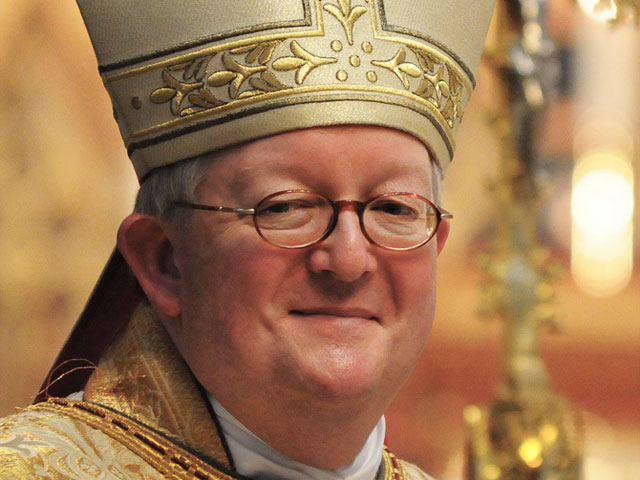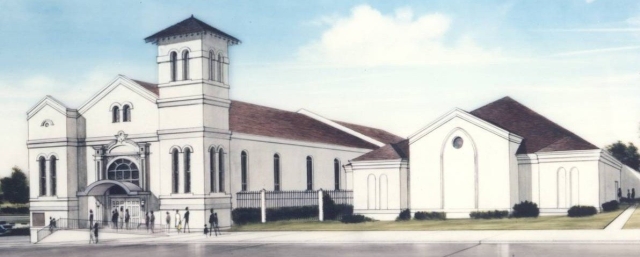One of the greatest mysteries in life is the moral complexity that is often found in the hearts of great men and women who live truly great lives and, even, in their best moments perform great deeds that can be called blessed, or even holy.
There is no question that the turning points in the life of Nelson Mandela, the times when he went to the mountaintop, required him to make stunningly courageous choices about issues that can only be described in terms of morality and justice, forgiveness and grace, sin and redemption. Where did the content of these decisions — especially his decisions to oppose vengeance and revenge on white oppressors — come from? What was the well from which Mandela was drinking?
Yes, he was a brilliant political figure and a flair for the dramatic. But something else was going on, too.
Meanwhile, what about the many personal valleys along the way?
Out of today’s tsunami of coverage, much of it hagiographic in nature, I thought two pieces stood out in wrestling with this duality. Consider the top of a major news essay at The Daily Beast, which even dares to use the term “sinner,” in large part because the great man himself spoke it.
The headline? “Mandela: The Miracle Maker.”
Nelson Mandela, who died December 5, refused to be thought of as a saint. “I never was one,” he insisted — “even on the basis of an earthly definition of a saint as a sinner who keeps trying.”
He wasn’t just being modest. He had a weakness for fine clothes and good-looking women, and he certainly was no pacifist. But a halo was the last thing Mandela needed. He spent half a century wrestling South Africa’s white-minority rulers to the negotiating table, and when he finally got them there, he had to be a hard bargainer, not a holy man.
And yet he worked miracles. … By insisting on looking forward rather than back, Mandela kept the nation from collapsing into a bloody orgy of revenge. Archbishop Emeritus Desmond Tutu, who received the 1984 Nobel Peace Prize for his role in the fight against apartheid, said it unequivocally to Mandela’s biographer Anthony Sampson: “If this man hadn’t been there, the whole country would have gone up in flames.” No one else — not even Tutu himself — had the moral authority to hold South Africa together.
The question journalists are wrestling with, of course, is this: What was the source and nature of his moral authority?
A sidebar at The Los Angeles Times directly addressed this issue, as well.
I am fascinated that Mandela — who talked about the role of faith in African life — was so aware of the fact that many of his admirers viewed him in terms that verged on sanctity. This was simply too simplistic for Mandela. The halo didn’t fit, but at crucial moments he still managed to do the right thing.
JOHANNESBURG, South Africa — An irritable man who got cross when he couldn’t have his favorite brand of mineral water? A fusser who obsessively folded his daily newspapers just so, who got annoyed if things weren’t lined up in their precise order? An aloof man who nonetheless flirted with any pretty young woman he met?
Could these accounts really tally with one of the world’s most beloved men, Nelson Mandela?
In his lifetime, Mandela always insisted that he wasn’t a saint, and by all accounts was quite irritated with the gilded view of him as an almost mystical figure. He even asked the Nelson Mandela Foundation to avoid using images of his face, which had become a kind of trademark, and focus on other things, such as his hands. He ordered them to make room for other people’s voices and memories. But the idolatry endured.
Idolatry? You mean, like putting his face in stained-glass in a church?
The myth had a price, said Verne Harris, project leader at the Nelson Mandela Center of Memory, a unit of the Nelson Mandela Foundation.
“In the process, all the complexities of this human being, all the flaws and elements of his characters and his life which don’t fit just get left out,” he said. “There’s a lot of ignorance. After all, he led an armed struggle. By many definitions he was a terrorist. That’s been washed away.”
What’s my point? Many of the Mandela pieces today have, simply stated, turned this man in a secular, political saint.
That’s simply too shallow a portrait, if the goal is to capture the depths of a man who faced the moral — yes, moral — choices that Mandela faced in both his personal and public lives. So where did the strength come from, to balance that human frailty? That’s the mix journalists need to seek.
This sinner seemed to know he need forgiveness. He proved it by pushing others to forgive. That’s a great, and very complex, story to cover.











